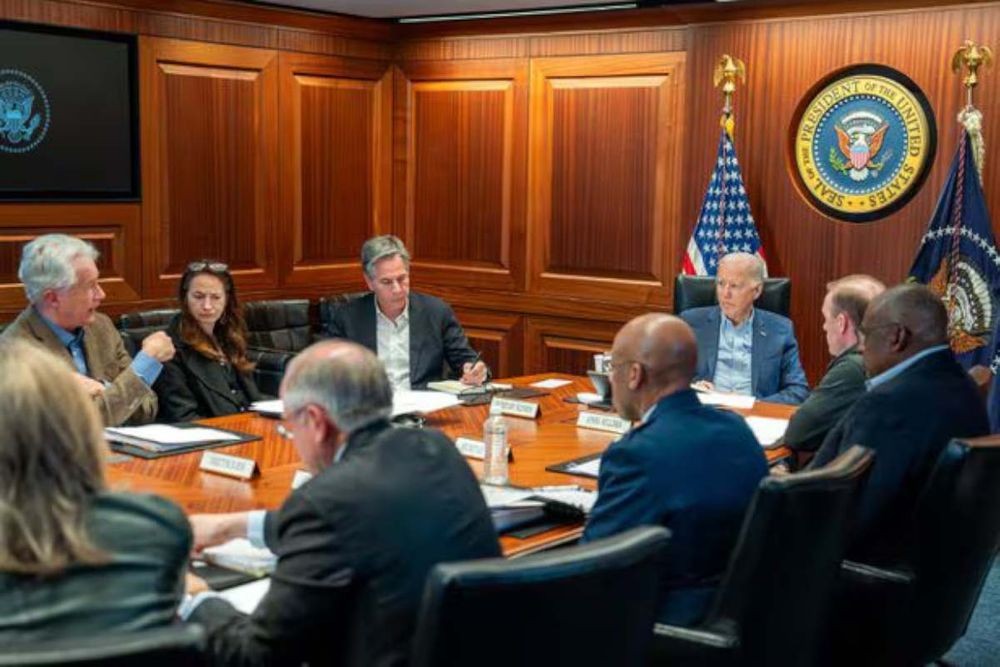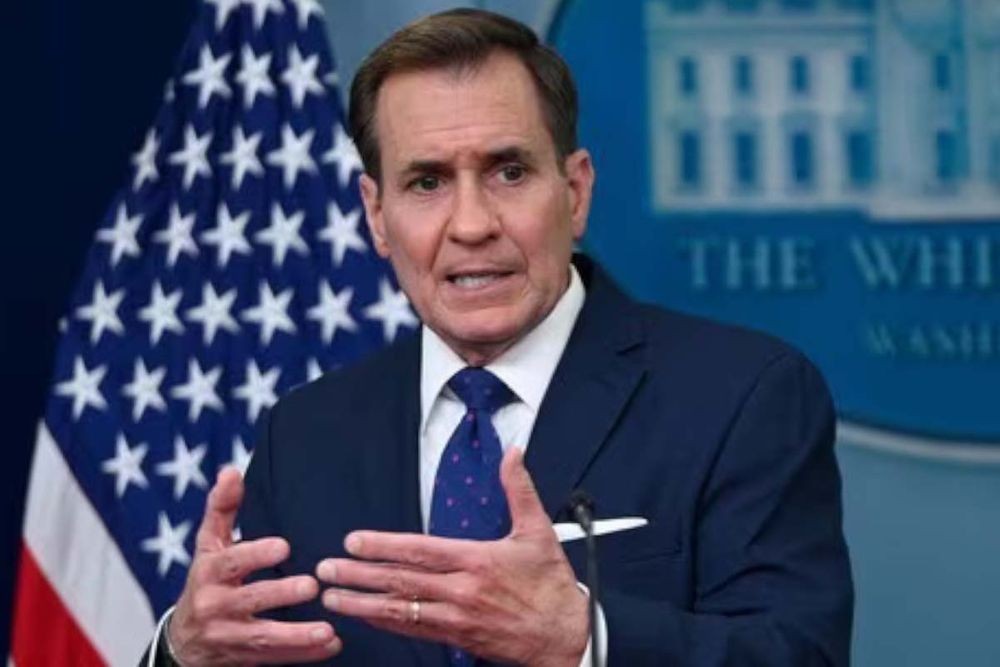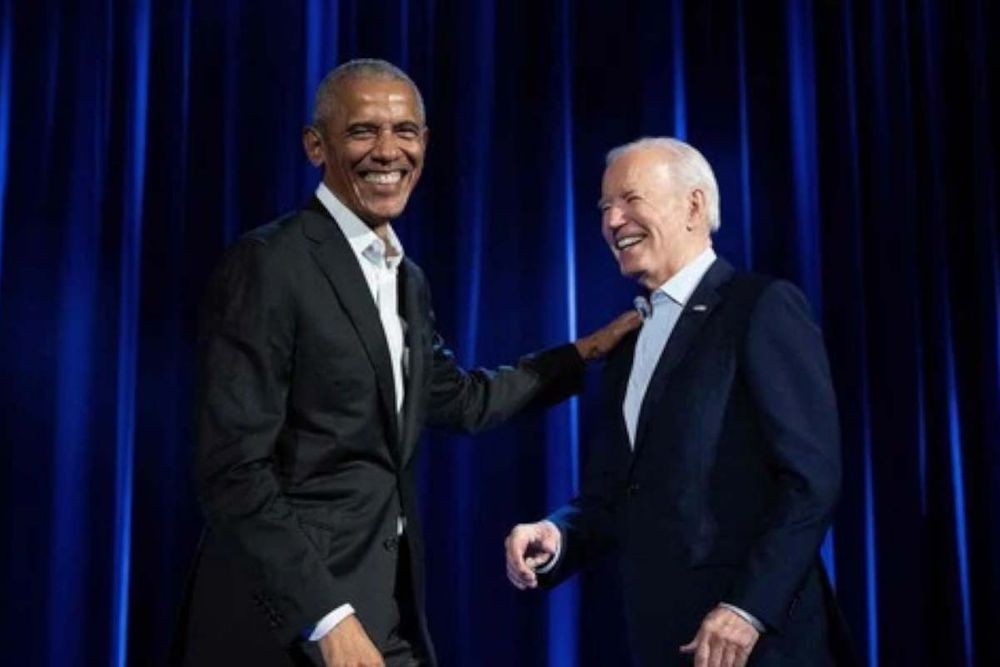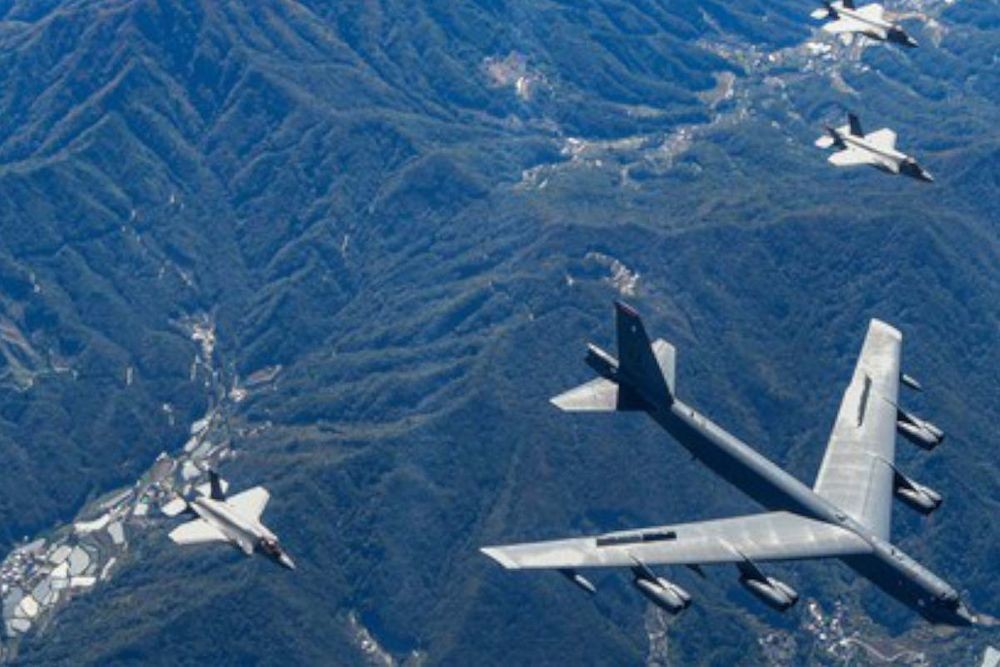
From the night of the 13th to the morning of the 14th (local time), Iran launched an attack on Israel, firing nearly 300 drones, ballistic missiles, and cruise missiles. This military retaliation comes 12 days after Israel’s airstrike on the Iranian consulate in Syria on the 1st of this month, which resulted in the assassination of a high-ranking commander of the Iranian Revolutionary Guard Corps (IRGC).
This marked the first full-scale military attack by Iran on Israeli soil since the two countries became adversaries following the Islamic Revolution in 1979.
In response, U.S. President Joe Biden attracted international attention by promising “ironclad support” for Israel against Iran’s various weapon attacks.
President Biden convened a meeting with top Central Intelligence Agency (CIA) officials, the Director of National Intelligence (DNI), and the White House National Security Team. Photos from the meeting were also released.
In the released photos, CIA Director William Burns is seen reporting to Biden, while DNI Director Avril Haines and others listen with serious expressions.
Biden firmly stated, “I met with the National Security Team to get briefed on the latest information about the attack on Israel caused by Iran. Our commitment to Israel’s national security against threats from Iranian proxies is ironclad.”

Adrienne Watson, spokesperson for the National Security Council (NSC), emphasized that “President Joe Biden has made it clear that our country’s support for the security of Israel remains ironclad. The U.S. authorities will stand by and support the defense of the Israeli people against various threats armed with Iranian weapons.”
Watson added, “Iran initiated the aerial attacks on Israel and continued the provocations. President Biden is regularly updated on the situation through the National Security Team and is paying close attention to the current situation with the team at the White House.”
The Israeli Prime Minister’s Office announced President Biden called with Israeli Prime Minister Benjamin Netanyahu. The two had previously discussed humanitarian aid issues related to an incident in the Gaza Strip in the second week of April. The Wall Street Journal (WSJ) analyzed that “the conversation during this call would have been conducted in a different tone.”
The ongoing war in the Gaza Strip, which has caused numerous civilian casualties, has also put the United States, the largest supplier of weapons to Israel, in a difficult position due to domestic and international criticism.

The New York Times (NYT) reported on the 6th (local time) that renewed attention is being paid to the “military aid agreement” signed during the Barack Obama administration, which serves as the backdrop for the U.S.’s comprehensive support of Israeli weaponry.
According to the New York Times, the Obama administration signed an agreement with the Israeli government in 2016 that the “U.S. will provide $38 billion worth of weapons to Israel over ten years.”
Former President Obama stated at the time, “The continuous supply of our military’s world-leading weapon technology will ensure that Israel can protect itself from any kind of threat.”
There was little controversy when the agreement was signed. In the 2010s, Israel was relatively peaceful, so there was hardly any concern about how and where the U.S. weapons would be used in the future.

However, the aid plan, which guarantees an additional $3.3 billion annually for weapon purchases and $500 million annually for missile defense, became controversial when the Israel-Hamas war broke out.
Since the surprise attack by Hamas on Israel in early October last year (2023), the U.S. has supplied tens of thousands of weapons to Israel. These weapons were mainly sent with the approval of Congress and the State Department long ago and supported by funds generated by the agreement during the Obama administration.
However, how the Biden administration handled new orders as the war began in earnest sparked backlash from Congress.
According to existing laws, the State Department does not have to report to Congress if the scale of the weapon order requested by Israel is less than $25 million. This secrecy policy was heavily criticized in Congress. A congressional official said, “Among the weapons ordered by Israel, three exceeded $25 million and required congressional review,” criticizing the U.S. State Department.
However, the State Department deepened the conflict with Congress by invoking emergency powers to bypass the review for two orders.










Most Commented